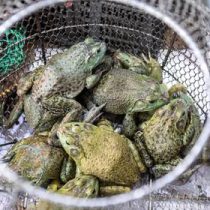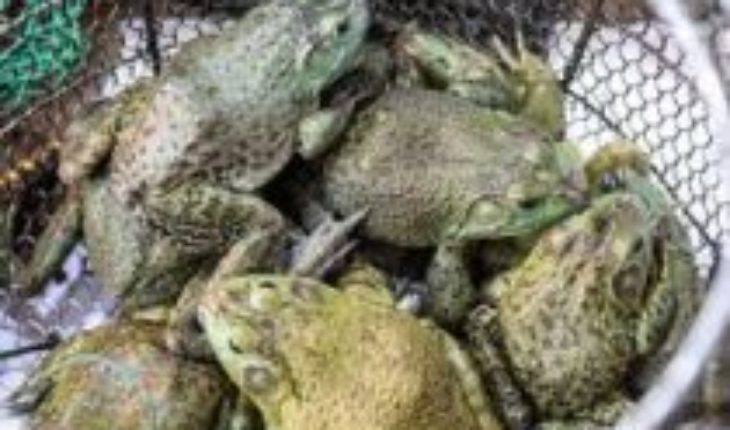
The Chinese provinces of Hunan (centre) and Jiangxi (east) will provide subsidies to farmers to abandon wild animal husbandry and opt instead for livestock or fruit and vegetable cultivation, following a government veto on the trade in these species.
According to China Daily, Hunan launched a provincial plan last Friday to compensate wild animal breeders after the country’s authorities banned their trafficking and consumption because of their alleged relationship to the origin of the coronavirus.
In particular, breeders of 14 species will receive subsidies that can reach 600 yuan (about 70 thousand pesos) for each civet; 630 yuan per porcupine; 378 yuan (almost 45 thousand pesos) per wild goose and 2,457 yuan (285 thousand pesos) for the Chinese muntjac deer.
120 yuan (14 thousand pesos) per kilogram of cobra, real rattlesnake or rat snake, and 75 yuan (more than 8 thousand pesos) per kilogram of bamboo rat will also be paid.
In addition, breeders will also receive financial aid to transform their activity and engage in the cultivation of fruits, vegetables, tea or livestock, according to the rotary.
This provincial directive comes after the Chinese authorities vetoed trade and consumption of wild animals as the origin of the Covid-19 outbreak could be found in the mutation of a virus from one of the specimens sold at a market in Wuhan, in the centre of the country.
There, in addition to fish and shellfish, rat meat, peacocks, freshly slaughtered hares and even crocodiles were illegally trafficked, they attest to photographs shared on social media.
Beijing reacted by decreeing the temporary suspension of these activities in January, and in late February approved another proposal to ban its trade permanently.
Practice difficult to eradicate
Specialist Peter J. Li of the Humane Society International animal protection group welcomed the approval of these proposals: “Chinese farmers have the opportunity to abandon a trade that poses a direct threat to human health, something that can no longer be tolerated in the light of COVID-19, and also contribute to developing a more sustainable industry,” the expert told Efe.
However, it believes “China still faces major challenges” to completely eradicate these practices “due to local protectionism, violations of legality by traders, and lack of mechanisms to enforce the law.”
It also denounces that these schemes do not include wild animals that, although not consumed, are used to make skins or to produce products from traditional Chinese medicine, and warns that hatcheries could end up slaughtering them to try to comply with the new directives.
Li also adds that, although the Government decided to revise the law on the consumption and trade of exotic animals at the end of February, a final text may not be prepared in time for approval during the annual session of the Chinese Legislative, which will begin on Friday 22nd after being postponed by the virus.





